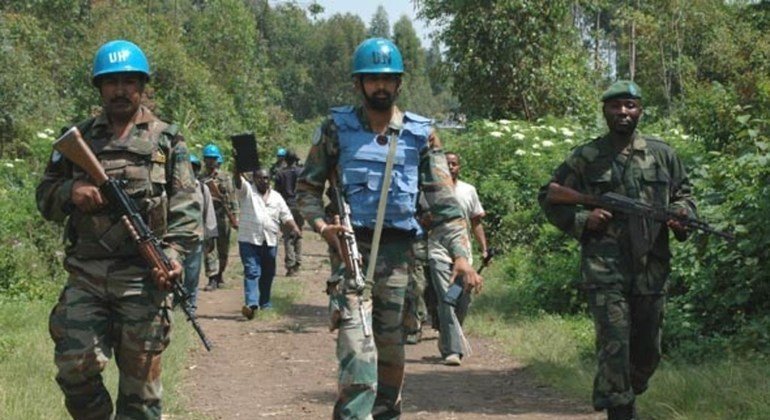Regional
Raila, Ruto cry foul as race gets tight

It is now very clear the contest for the August presidential election is
a two horse race between Raila Odinga and William Ruto. As the race gets tight,
both presidential aspirants have cried foul against the Independent Elections and Boundaries Commission (IEBC), citing
irregularities that may hinder free and fair elections.
On his part, Ruto recently alleged that “powerful individuals” in the government, whom he did not name, were undermining the electoral body’s ability to deliver a credible election. Ruto made the statement during a meeting with the EU Ambassador to Kenya, Henriette Geiger, and other diplomats at his Karen office on June 2. Ruto called on the EU diplomats to be vigilant of the electoral process, claiming that between 800,000 to one million voters from his strongholds have disappeared from the voter registry.
Ruto, the United Democratic Alliance (UDA) leader, said that the IEBC and
the government under President Uhuru Kenyatta must explain the discrepancy. Analysts
believe that the “powerful individuals” Ruto declined to mention were President
Kenyatta and close associates since he has indicated his support for Raila.
Wafula Chebukati, the chairman of the polls body, termed Ruto’s claims as rumours,
adding that the registry is intact.
“We shall account for each and every Kenyan who registered to
vote.”
The IEBC boss, contrary to Ruto’s claims of missing names,
explained that the one million names he claims are missing are those of voters
who applied for transfers to new polling stations. In March, when Ruto spoke at
Chatham House in London, he claimed there were plans – by what he referred to
as ‘Deep State’ – to rig the August election.
He warned that such
efforts to sabotage democracy were dangerous for the country.
Raila raised issues ranging
from requesting the IEBC to engage with stakeholders on its election preparedness;
reveal the status of the voters’
register audit; and to provide an update on the deployment of election
technology. He also raised issues like security of printing ballot papers,
testing election technology ahead of elections and many others.
Raila urged the IEBC to prepare free and fair elections.
In response, Chebukati said: “The majority of these concerns
have been addressed; we are ready to engage to resolve any other concerns.”
On two occasions; in 2013 and 2017, Raila claimed that his votes were stolen in the presidential contests with Mwai Kibaki and Kenyatta. Raila’s fears are raised against the same man Chebukati who was the IEBC chairman in 2017, when he complained that he had been short changed.
Meanwhile, opinion polls released by Infotrak Research indicated that Raila is ahead of Ruto with 42 percent and 38 percent, respectively. If the elections were to be held on the date the polls were conducted, Raila would receive 9.3 million votes, while Ruto was likely to obtain 8.4 million votes according to Infotrack.
Also, opinion polls conducted by Trends & Insights for Africa (TIFA) released in May, placed Raila ahead with 39 percent while Ruto came second at 35 percent.
Since Kalonzo Mushyoka made a U-turn to rejoin Raila in Azimio, Ruto has become an uncomfortable man probably sensing that the balance of forces tilted in favour of his opponent, hence trying to raise alarm of possible vote rigging to create awareness that he is likely to reject the outcome of the polls and is preparing the ground to organize anti-poll demonstrations and force a second round of voting as happened in 2017.
Again, after Raila’s choice of Martha Karua as running mate, a number of women groups indicated that they will vote for the Azimio leader. Although Ruto’s camp is also eyeing women votes, their main focus is on the youth and low income earners, who have been promised to benefit from a bottoms up economic model that will put money into their pockets.
The race for statehouse between Raila and Ruto is tight, with
the winner expected to get less or slightly more than 10 percent of the
votes.



.jpg-20220608103232000000.jpg)


